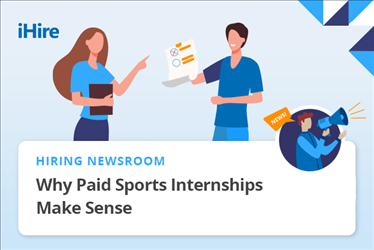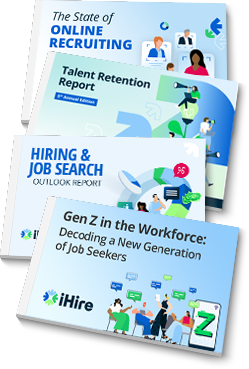- Employer Resources
- |
- Last Updated: May 06, 2022

Why Paid Sports Internships Make Sense
Getting a job in the sports industry is a competitive process that has typically had high volumes of applicants for a small number of positions. However, the pandemic and the ensuing Great Resignation have changed that. While salaries should increase by an average of 3.9% in 2022, sports salaries have remained stagnant for so long that realizing that raise level may not be enough to attract and retain valuable employees.
In her first year as Chicago Fire FC’s President of Business Operations, Ishwara Glassman Chrein is addressing some of the organization’s inequities. She shed light on the issues people with jobs in the sports industry face in the Sports Business Journal. In her first year with the Fire, Glassman Chrein started tackling employee retention issues by doing the following:
• Providing eight weeks of paid parental leave (and an additional 6– 8 weeks paid maternity leave)
• Raising pay for ticket sales employees
• Instituting performance bonuses for all full-time employees
• Paying interns
Unpaid Sports Internships a Barrier for Jobs
As Glassman Chrein notes, student interns are “receiving a head start with a foot in the door and connections being made for future jobs within the organization or future teams they work for.” That head start is frequently the difference between landing a job in the sports industry and your resume getting tossed out unread.
When sports internships are unpaid, they only provide a foot in the door to students with the means to perform unpaid labor for months (if not a year) without being significantly set back financially. Moreover, in a field that struggles to hire diverse candidates, those unpaid internships serve as a gatekeeper to further reduce the pool of qualified candidates from underrepresented backgrounds.
Looking back on the 12 years I spent working as a communications professional in the sports industry, I know that I would have struggled to get into the field or stay in it without advantages that are not available to everyone. I spent a semester working in my college’s athletic department for credit while volunteering at my college radio and TV stations, along with doing an unpaid summer internship because my family could support it. As Diversity, Equity, and Inclusion rightfully gain more prominence in hiring practices, requiring unpaid interns to bear financial burden in exchange for a line on a resume excludes nearly everyone without the means to cover these costs.
Create Your Account Today

The Case for Paid Internships
More than 40% of internships in the United States are still unpaid. Summer internships are the most common for college students and the cost incurred by students for a three-month unpaid summer internship back in 2016 was an estimated $6,800. While those seem like individual problems, here is why providing paid internships benefits an organization:
In 2019, 56.1% of all interns converted their experience into a full-time job with the same company upon graduation and those hires are 20% more likely to stay one year or longer.
- College enrollment statistics reveal this is the most diverse amount of undergraduates in US history.
- Among this pool of graduates, 83% stated a company’s commitment to diversity and inclusion is important when choosing an employer.
- Black students currently graduate with $7,400 more in student debt than white students, affecting their ability to take unpaid internships.
Internship Barriers Continue in Entry-Level Roles
In addition to unpaid internships, low salaries for entry-level jobs in the sports industry can serve as a further hurdle to entry into the sports business. In 2017, Duke University posted a full-time, 11-month Athletic Facilities, Game Operations, and Championship Assistant position for a whopping $0.
People who work in sports know the expectations for these positions going in. Associating with athletic events is a real draw to working in the sports industry. Still, passion for working is not always enough to sustain a long career in the field.
The Great Resignation shook up industries across the country, and Dr. Bill Sutton explains that sports were no exception. Unsatisfactory pay was the number one reason employees would leave a job according to respondents in iHire’s Talent Retention Survey. There are numerous ways to invest in your team that apply across industries, but finding a way to improve compensation, rather than assuming that the pre-pandemic demand for sports positions will return, is the biggest step to hiring and keeping workers from all backgrounds to grow and thrive in the sports industry.

Originally Published: March 25, 2022
RELATED RESOURCES
Hiring? You're in the Right Place.
- Reach unique talent: 51% of our candidates aren't using other job boards
- Connect your ATS and get 6x more applications with iHire's apply process
- Get matching candidate resumes sent straight to your inbox
We Value Your Privacy




![Skills Over Degrees: The Future of Hiring [Video Webinar]](https://p-gpb8fhd4b9fbh6fy.z01.azurefd.net/cms/2f6c3996-55d2-41a7-92cd-801a93177d31/4adbd698-ab4c-4e81-9823-8c8cfade1f76-md.png)

